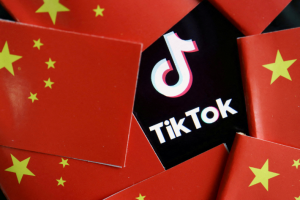(ATF) This year China aims to complete 70% of its three-year plan for market-oriented reforms of state enterprises, and to ramp up reforms in the energy and railway sectors, officials said during the ‘Two Sessions’.
The ‘Two Sessions’ – annual gatherings of the Chinese People’s Political Consultative Conference (CPPCC) and the National People’s Congress (NPC) – are a window on the central government‘s priorities and plans for the coming year.
China will drive state-owned capital and enterprises to focus on important areas such as strategic security, technological advancement, state interest, people’s well-being and public services, Zhao Chenxin, secretary-general of the National Development and Reform Commission, China’s top economic planner, said on Monday.
2021 is seen as a crucial year for China’s three-year reform plan for SOEs, which started in 2020. Beijing is pushing for mixed-ownership of over 200 SOEs, as well as a standard subsidy system, so that it intervenes less in SOE’s operations, and opens up some segments of strategic sectors such as power grids, telecoms, railways, plus oil and gas, to competition.
China will push for opening business segments of power grid enterprises that are more market-driven in nature, such as equipment manufacturing, design, and construction, Zhao said. The country also wants to establish a unified national electricity market and expand pilots of electricity spot trading, he said.
In the railway sector, China will encourage “moderate competition” between railway transport operators, Zhao said.
‘Stronger, better, bigger’ SOEs
Meanwhile, Hao Peng, chairman of the State-owned Assets Supervision and Administration Commission (SASAC) under the State Council, said in an article published in communist party-backed Study Times on Wednesday they urgently need to make SOEs stronger and better before making them bigger, while China has set a goal to make state-owned capital and enterprises “stronger, better, and bigger” in the 14th Five-Year Plan.
China will expand the development of forward-looking, strategic and emerging industries, optimize structures, and continue to push SOEs to offload “non-core” and “non-competitive” businesses as well as “low-efficiency” and “zero-efficiency” assets, Hao said on another occasion last month.
“We see China seeking to improve its market-oriented systems and building a unified mega-sized domestic market guided by the dual circulation strategy. We also see China promoting a competitive neutrality policy in most areas that don’t involve national strategic security, enabling private enterprises to take on SOEs,” several equity research analysts at HSBC said in a commentary.
“SOEs may see intensified market competition,” they added.
In HSBC’s view, SOEs with historical-low return on equity (ROE) and a high share of ownership by the government, such as Shanghai-listed Sinomach Auto and Shanghai Film, as well as Shenzhen-listed Fujian Jinsen, will most likely be restructured.
China is home to over one-fifth of corporations listed on the Fortune Global 500, and about 85% of them are SOEs, representing a significant portion of global SOEs on the list. Last year, China’s Sinopec, State Grid, and China National Petroleum – all SOEs – grabbed the second to fourth spots on the Fortune Global 500 list, which was topped by Walmart.
Long criticized for their privileges to government subsidies, low-interest loans, and land use rights, SOEs play an important role in China and are frequently utilised as a mechanism for implementing policy, providing socio-economic stability and building infrastructure.
As noted by Wang Dan, chief economist at Hang Seng Bank China, the SOEs were the hopes for China to achieve quick recovery from economic downturns when private companies hold their investment in difficult times.
“This is exactly what happened after the Covid-19 breakout. We saw that SOEs are the ones which return to production first, and then their suppliers from the private sector can also recover,” Wang said.
More flexibility and responsiveness wanted
In light of the changing global landscape, China is transitioning from an investment-driven export economy to a consumption-oriented economy that requires a level of flexibility and responsiveness that publicly-owned bodies generally lack.
To make SOEs stronger and more efficient, as well as to level the playing field, China is pushing for the mixed-ownership reform among SOEs, allowing them to introduce strategic private investors.
The government went as far as introducing mixed ownership in telecoms company China Unicom, by selling shares worth around $11 billion in 2017 to 14 private investors such as Alibaba, Tencent, Baidu, and JD.com.
To fast-track mixed-ownership reforms, China launched a 200-billion-yuan ($31 billion) fund in Shanghai last December. The fund will attract private capital to state-owned sectors and co-invest with SOEs in private firms in a bid to increase the resilience of the country’s industrial chains.
According to data from SASAC, central SOEs have become shareholders in more than 6,000 non-state companies since 2013, and more than 70% of central SOEs are mixed-ownership firms – up 20 percentage points from 2012.
For these kind of reforms, the actual control of decision-making has been a point of debate because private capital can be very important to shareholders but the final decisions are usually made by state-owned parties.
“We believe this institutional change is the most difficult, so private investors must be given more cash incentives and other social rewards to stay motivated to improve SOE efficiency – while at the same time preserving the state interest,” Wang said.
























